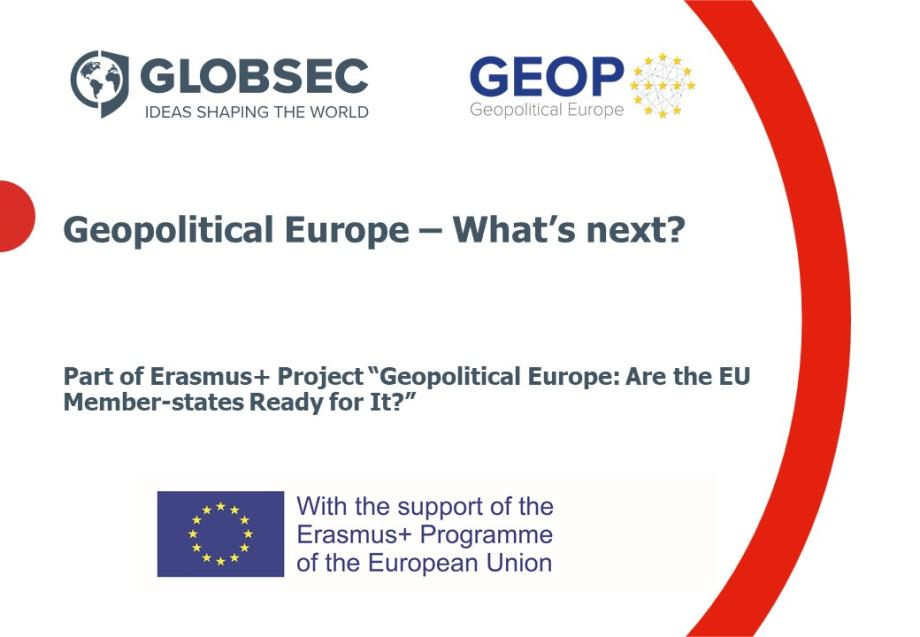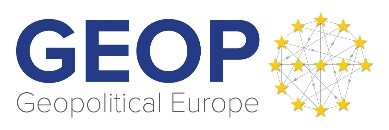Event Summary- ‘Geopolitical Europe – What’s next?’

The purpose of this close-door meeting with select stakeholders held on 17 March 2022 in Brussels was to discuss the future of European security architecture in relation to the latest geopolitical turmoil on the continent.
Can this be a defining moment for the EU Member States to create a common foreign and security policy that is coherent, proportional, and effective? Moreover, can transatlantic relations converge with the instruments of the European strategic autonomy in domains such as defense, cybersecurity, energy, tech & industry, and other areas? We are yet to find out: what’s next for geopolitical Europe? Are we truly going back to the East-West divide?
The following themes were covered:
- European autonomy as it is reflected in Central and Eastern Europe;
- West’s long-term approach towards Russia
- The difficulties behind the West’s China problem.
This event was held in an open discussion format, with experts in international affairs, foreign policy, and West-Russia relations from concerning the Member States. Introductory remarks were provided by Roland Freudenstein & Jakub Wisniewski, followed by brief points by each participant.
A stronger voice for the ‘smallest,’ yet with controversies
At a European level – the voice of several Central, Eastern and Northern countries will now have another status in decision-making circles. As they had presciently been warning of this very situation for years, in all levels of European politics, they have significant credence now, and unprecedented attention is dedicated to them on the Russian front. Whether this is due to well-staged PR or symbolic moves (such as the visit by the 3 PMs to Kyiv a couple of days ago), calculated political manoeuvres, such as trying to create a fait accompli via various political statements, or simply because they are closer to the Russian and Ukrainian borders, and are most exposed to host millions of refugees, thus carrying the weight of the crisis.
Here, the most noticeable is the germinal rapprochement in the Polish and German relations, mainly triggered by the Zeitenwende – or the turning point – in the German foreign policy, which created new diplomatic corridors for cooperation. However, the issue of trust is still there and Poland does not feel ready (yet) to receive military reinforcement in terms of German deployed troops on its territory.
The Polish and the Hungarian political establishments seem to have been playing with fire when the geopolitical nightmare proceeded into reality. These countries’ eternal battles with the organisation of free and fair elections and the respect for human rights, dignity, and the rule of law, were suddenly forgotten.
What will happen after Putin?
The discussants failed to reach a consensual conclusion when it came to this topic. Either speaking about (1) a regime change and transition towards a democratic Russia, (2) a dystopian scenario with a fight for power between elites, with the danger of some federal states declaring independence or becoming more autonomous, or (3) a continued Russian foreign policy that will follow the historical path set in stone by Peter the Great – that of defensive expansion.
China – indeed, a difficult rival
China remains a dangerous actor on the global scene and a serious systemic challenge. With its Leviathan Belt and Road Initiative and its increasingly warming economic relations towards the Russian Federation, their overriding good is to weaken the West, and if they can, why not do it together, as a force multiplier? Punishing China is improbable, as Europe is too comfortable with maintaining good economic relations and trade.
Moreover, there is no way that the West can promote sanctions against Russia and China simultaneously at the moment, as our economies will find it hard to cover up for the losses and to deal with inflation, energy, food, technological and security supplies. Europe must learn from the effects and counter-effects of its sanctions towards Russia, in order to achieve a greater degree of economic resilience against counter-sanctions and to prepare for a potential stress test in case the is an inevitable future clash with China.
Overall, we can only agree that the world will remain divided into a coalition of democracies, one of autocracies, and some states that are in between. Where one draws the line, that is still a matter of great subjectivity.
*The summary is published within GLOBSEC GEOPE—Geopolitical Europe: Are the Member States Ready for It? Project supported by Jean Monnet Actions of the EU’s Erasmus+ program.
*The European Commission support for the production of this publication does not constitute an endorsement of the contents which reflects the views only of the authors, and the Commission cannot be held responsible for any use which may be made of the information contained therein.

